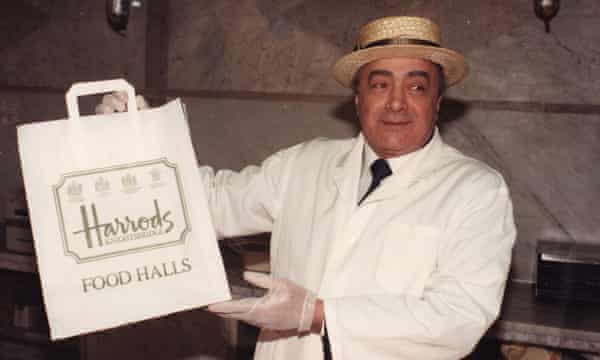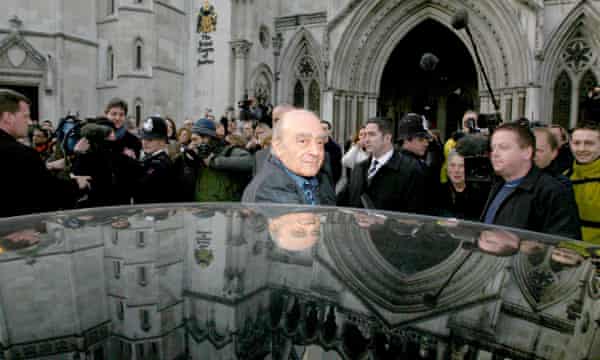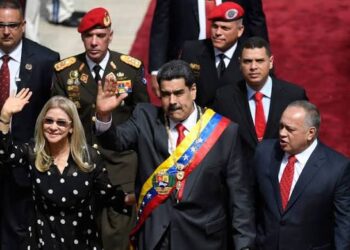Mohamed Al Fayed, the Egyptian-born businessman who owned the department store Harrods, has died aged 94.
His death comes almost 26 years to the day after the car crash in Paris that killed his eldest son, Dodi, and Diana, Princess of Wales, on 31 August 1997.
In a statement released by Fulham FC, his family said: “Mrs Mohamed Al Fayed, her children and grandchildren wish to confirm that her beloved husband, their father and their grandfather, Mohamed, has passed away peacefully of old age on Wednesday 30 August 2023.
“He enjoyed a long and fulfilled retirement surrounded by his loved ones. The family have asked for their privacy to be respected at this time.”
Fayed was born in Alexandria and was the son of a schoolteacher.
His break in business came after he met his first wife, Samira Khashoggi, the sister of Saudi millionaire arms dealer Adnan Khashoggi, who employed him in his Saudi Arabian import business.
The role helped him forge new connections in Egypt and he went on to launch his own shipping business, before becoming an adviser to one of the world’s richest men, the Sultan of Brunei, in 1966.
He moved to Britain in the 1970s and in 1979, with his brother Ali, he bought the Paris Ritz Hotel.

The Fayeds’ next target was Harrods and in 1985, after a long and bitter battle with British businessman Roland “Tiny” Rowland, the brothers succeeded in clinching a £615m takeover bid for the Knightsbridge store.
A subsequent government investigation into the bid, officially published in 1990, found that Fayed and his brother had been dishonest about their wealth and origins to secure the takeover.
They called the claims unfair. Five years later, his first application for British citizenship was rejected.
Fayed had fallen out with the British government again in 1994 when he approached the Guardian with allegations that he had paid Conservative MPs to ask questions in parliament on his behalf.
The affair led to the resignation of MP Tim Smith as a Northern Ireland minister while another MP, Neil Hamilton, was found to have accepted bribes, including a holiday at the Ritz and a free shopping spree at Harrods. Hamilton did not stand down, lost a libel case he lodged against Fayed, and lost his seat at the 1997 general election.
Fayed also exposed cabinet minister Jonathan Aitken’s involvement in a Saudi arms deal. Aitken was later jailed for perjury and perverting the course of justice.
Despite living in Britain for decades, Fayed was never granted citizenship and threatened to move to France, which gave him the Legion of Honour, its highest civilian award.
Fayed sold Harrods in 2010 to the investment arm of Qatar’s sovereign wealth fund for a reported £1.5bn, although it was once reported he wanted to remain there even in death.
He told the Financial Times in 2002 that he wanted his body to be put on display in a glass mausoleum on the Harrods roof “so people can come and visit me”.
The businessman also, unsuccessfully, resurrected the satirical magazine Punch and in 1997 he bought Fulham football club in west London for £6.25m, famously inviting Michael Jackson to watch a game at Craven Cottage. He transformed the club from a struggling outfit into a top-flight side.

In 1999, Fayed agreed for the club’s manager, Kevin Keegan, to take over as the England national team manager. Fayed sold the club to billionaire businessman Shahid Khan in 2013.
A year later he claimed they were relegated because a giant statue he had commissioned of Jackson outside the ground was removed.
Critics, he said characteristically, “can go to hell”.
Khan said on Friday evening: “On behalf of everyone at Fulham Football Club, I send my sincere condolences to the family and friends of Mohamed Al Fayed upon the news of his passing at age 94.
“The story of Fulham cannot be told without a chapter on the positive impact of Al Fayed as chairman. His legacy will be remembered for our promotion to the Premier League, a Europa League final, and moments of magic by players and teams alike.
“I always enjoyed my time with Al Fayed, who was wise, colourful and committed to Fulham, and I am forever grateful for his trust in me to succeed him as chairman in 2013.
“I join our supporters around the world in celebrating the memory of Mohamed Al Fayed, whose legacy will always be at the heart of our tradition at Fulham Football Club.”
Fayed married the Finnish socialite and former model Heini Wathén in 1985, with whom he had four children: Jasmine, Karim, Camilla, and Omar.
The billionaire fought a long-running campaign after the deaths of Dodi and Diana, alleging that the crash was not an accident and that it had been orchestrated by the British security services.

However, French police concluded that it was an accident, caused in part by speeding and by the high alcohol level in driver Henri Paul’s blood. In 2006, a Metropolitan police inquiry led by Lord Stevens found no evidence to back up claims that the security services were involved in any way.
Al Fayed became a friend of Diana through his sponsorship of charities and events attended by royal family members. The billionaire’s relationship with the royal family was recently depicted in season five of The Crown, where he was played by Salim Daw.
He set up the Al Fayed Charitable Foundation in 1987 to better the lives of impoverished, traumatised and very sick youngsters.
According to Forbes’ list of the world’s billionaires, Fayed was worth $1.9bn in November 2022.
Agence France-Presse contributed to this report
… there is a good reason why NOT to support the Guardian.
Not everyone can afford to pay for news right now. That is why we keep our journalism open for everyone to read. If this is you, please continue to read for free.
But if you are able to, then there are THREE good reasons to support us today from Ghana.
1. Our quality, investigative journalism is a scrutinising force at a time when the rich and powerful are getting away with more and more
2. We are independent and have no billionaire owner pulling the strings, so your money directly powers our reporting
3. It doesn’t cost much, and takes less time than it took to read this message
Help power the Guardian’s journalism for the years to come, whether with a small sum or a larger one.
Support the Guardian from as little as $1 – it only takes a minute. If you can, please consider supporting us with a regular amount each month. Thank you.










Discussion about this post